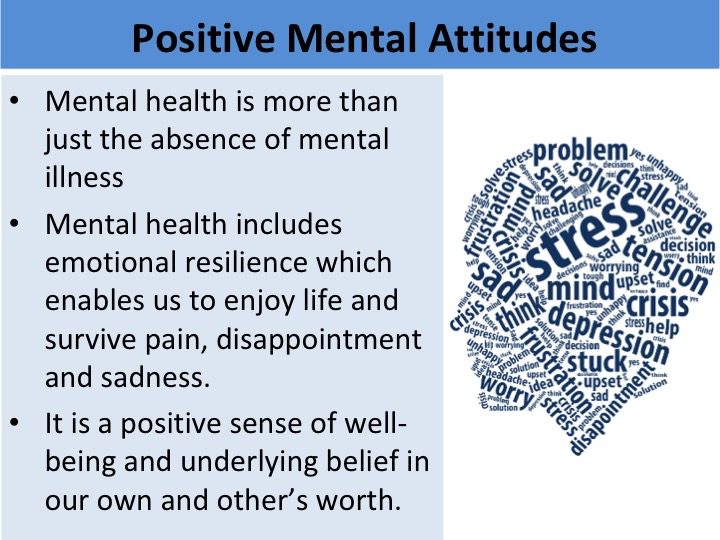Narcissist disrespect boundaries
Why Do Narcissists Disrespect Boundaries?
The importance of setting boundaries in a narcissistic relationship is immeasurable. After months, years, even decades of narcissistic abuse, victims often become accustomed to putting the well-being of their abuser ahead of their own. Setting healthy boundaries with a narcissist is the best way to break free from that custom but it is hard because narcissists are notorious for disrespecting boundaries.
Narcissists disrespect boundaries because it contradicts their falsified identity and impedes their insecure pursuit of power, control, and narcissistic supply. A narcissist feels entitled to having the world revolve around them so the concept of healthy boundaries is both offensive and a foreign concept to them.
With that being said, a narcissists hatred for boundaries shouldn’t deter victims of narcissistic abuse from setting them. Boundaries are the first step victims must take to successfully escape the narcissistic abuse cycle. Having a comprehensive grasp about why narcissists disrespect boundaries will eliminate any doubt victims of narcissistic abuse may have about setting them in the first place.
The concept of healthy boundaries is foreign in the narcissistic realm. Healthy boundaries are designed to illuminate one’s comfort zone. It is a really simple and effective technique someone could use to protect themselves in the relationships they form. To a narcissist, healthy boundaries contradict their falsified identity and subsequently represent deeply rooted aspects of their true identity that they despise.
What does this mean?
One thing that isn’t necessarily common knowledge about narcissistic abuse is how good they are at compartmentalization. According to APA Dictionary of Psychology, compartmentalization is a defense mechanism in which thoughts and feelings that seem to conflict or to be incompatible are isolated from each other in separate and apparently impermeable psychic compartments.
A narcissist’s falsified identity is the clearest manifestation of their ability to compartmentalize their negative emotions. There’s a lot of really important information about this topic in our article How Are Narcissists Made but for the purpose of this article readers have to understand that it is widely believed that narcissists are created by an unhealthy/abusive upbringing.
This upbringing left the narcissist so emotionally immature that they’re incapable of conceptualizing a realistic image of themselves and regulating their negative emotions on their own.
A non-narcissistic person would be able to recognize this at some point and seek the guidance of a medical professional but narcissists make the mistake of associating their negative emotions with weakness and develop a fear of rejection and abandonment from others because of it.
This causes them to compartmentalize their negative emotions deep within their psyche and hide them behind a falsified identity to soothe their fear of abandonment and rejection.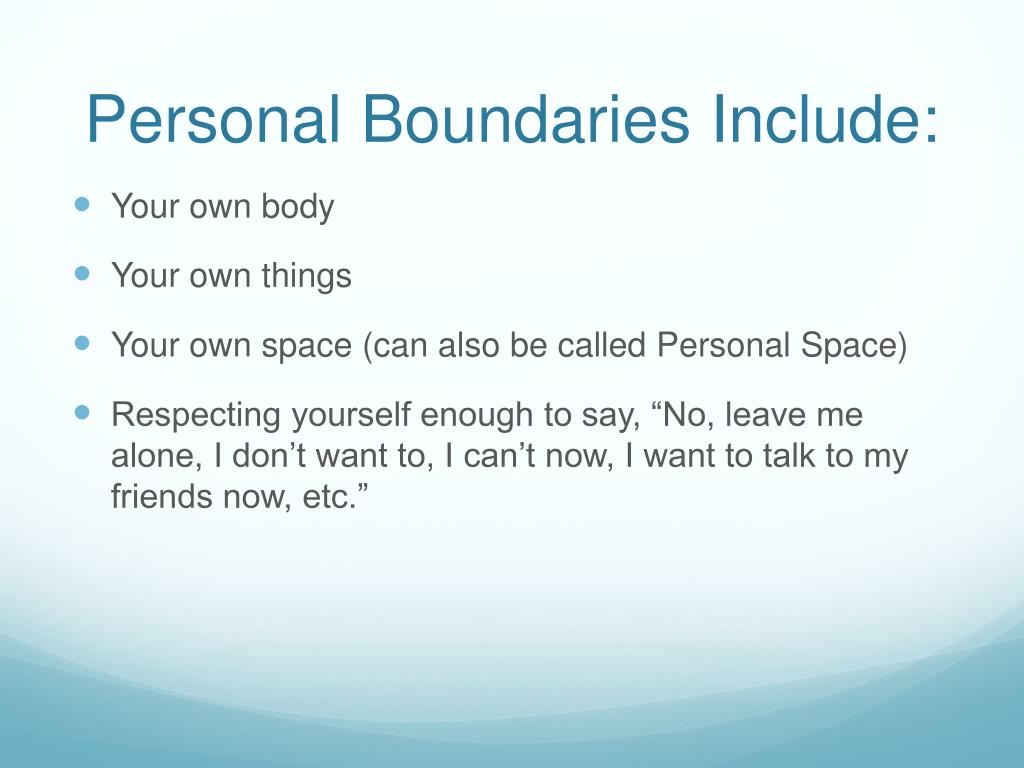 Unfortunately, they build the falsified identity out of their own perception of what society values.
Unfortunately, they build the falsified identity out of their own perception of what society values.
This is problematic because their emotional immaturity makes them incapable of looking past society’s superficial exterior so they use very materialistic, superficial , and trivial aspects of life when building their identity. Their falsified identity is essential to their well-being because their compartmentalized negative emotions have a sun-like gravitational pull that is eating away at them from the inside.
In other words, the only thing keeping them from being consumed by their negative emotions is their falsified identity. On a subconscious level a narcissist is aware of the importance of their falsified identity which is why they become so aggressive when it gets contradicted.
To a narcissist, healthy boundaries represent limitations. It is another human-being looking the narcissist in the eye and either verbally or non-verbally telling them that they can’t do something.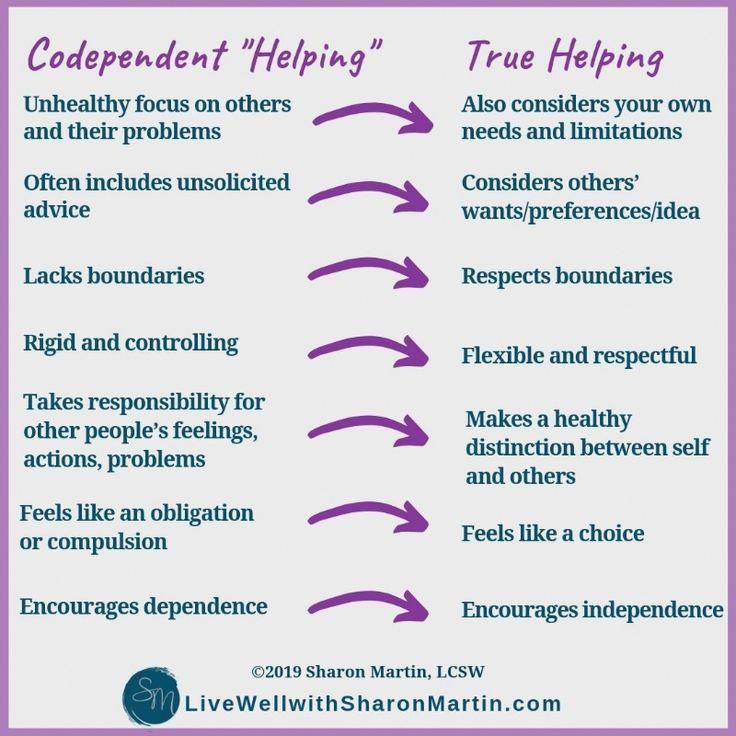 This triggers their suppressed negative emotions, specifically their sense of inadequacy, and it infuriates them.
This triggers their suppressed negative emotions, specifically their sense of inadequacy, and it infuriates them.
It’s in this way that it contradicts their falsified identity because it serves as a constant reminder that they’re not the grandiose, larger than life, special, and unique individual that they portray themselves as and their emotional immaturity makes them incapable of regulating the shame that comes from that type of realization.
Narcissists Disrespect Boundaries Because They Impede Their Insecure Pursuit of Power, Control, and Narcissistic SupplyThe sun-like gravitational pull that a narcissist’s compartmentalized and suppressed negative emotions create is no joke. They spend every waking hour ensuring that their falsified identity is kept intact and secure. The three most reliable “narcissistic substances” that they can use to prevent their falsified identity from being consumed by their negative emotions are power, control, and narcissistic supply.
How Does Power and Control Manifest In the Narcissistic Realm?
In the narcissistic realm, power and control represents their ability to manipulate others into believing their falsified identity. This could be done through either physical or emotional abuse. A very good example of this process can be found within narcissistic families.
For example, a child who is being physically abused by their narcissistic father and emotionally neglected by both their narcissistic father and enabling mother have no choice but to equate love with abuse because that’s all they’re shown.
The point is that the narcissist is able to control the narrative of what’s acceptable and what’s not. This narrative is always designed to protect the narcissist’s falsified identity while simultaneously corrupting their victim’s perception of a healthy relationship and core values. Over time, this way of life will cause the victim’s life to revolve around the narcissist’s, giving them total power and control which reduces the chances of their falsified identity being contradicted.
What Is Narcissistic Supply?
The validation, admiration, and reassurance that narcissists extract from others is called narcissistic supply. A narcissist’s falsified identity is designed to accumulate narcissistic supply.
This could manifest in the form of a narcissist portraying themselves as pillars of society, celebrities with millions of fans, the star quarterback of a high school football team, or even an individual who victimizes themselves to manipulate others into pointing out all of their positives.
A narcissist is heavily dependent on narcissistic supply because it helps them keep their falsified identity intact and suppress their compartmentalized negative emotions.
How Do Boundaries Prevent a Narcissist From Accumulating Power, Control, and Narcissistic Supply?
A hidden aspect of narcissistic supply is its versatility. While it often manifests in forms of admiration and validation like awards, praise, gratitude, and a following, it also manifests in the form of chaos.
A narcissist needs a tangible representation of the destruction that they cause because in their distorted version of reality, seeing the harm that they bring to others serves as a constant reminder that their falsified identity is real.
They don’t view the pain of their victims as a manifestation of their abuse, they view it as reassurance that they are as great as they think they are. It is so weird and difficult to wrap your mind around but it should attest to how emotionally immature, delusional, and unfixable they truly are.
However, when victims of narcissistic abuse set and maintain healthy boundaries with the narcissist, it strips them of their much needed tangible representation of the destruction that they cause.
How?
The way that narcissists accumulate narcissistic supply is through narcissistic behavior patterns. When a victim of narcissistic abuse begins to set boundaries with the narcissist, they prohibit them from using manipulative behaviors like gaslighting, love bombing, or narcissitic rage that are designed to extract narcissistic supply.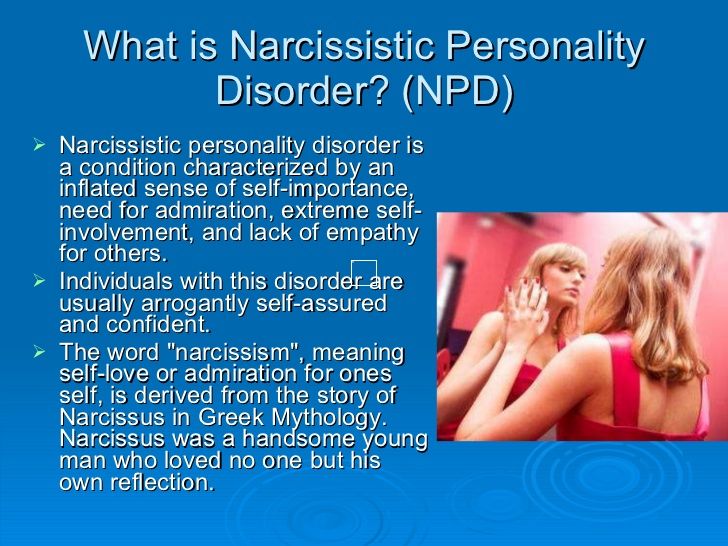
There are many more examples of this in our article What Are Some Boundaries You Can Set With a Narcissist but one boundary a victim of narcissistic abuse could set with a narcissist that would impede their pursuit of power, control, and narcissistic supply is journaling to hold onto their version of reality.
Gaslighting, the denial of someone’s reality, is by far the most dominant form of manipulation that narcissists use because of how versatile it is. It can manifest in nearly every single narcissistic behavior pattern imaginable and over time it causes the victim to depend on the narcissist to accurately conceptualize their own reality.
By journaling to keep a detailed account about everything that happens in the narcissistic relationship can be a really good technique that victims of narcissistic abuse can use to validate their own reality.
As you can imagine, narcissists aren’t going to like their victim setting boundaries that target core aspects of their falsified identity so they disrespect and/or disregard boundaries their victim sets.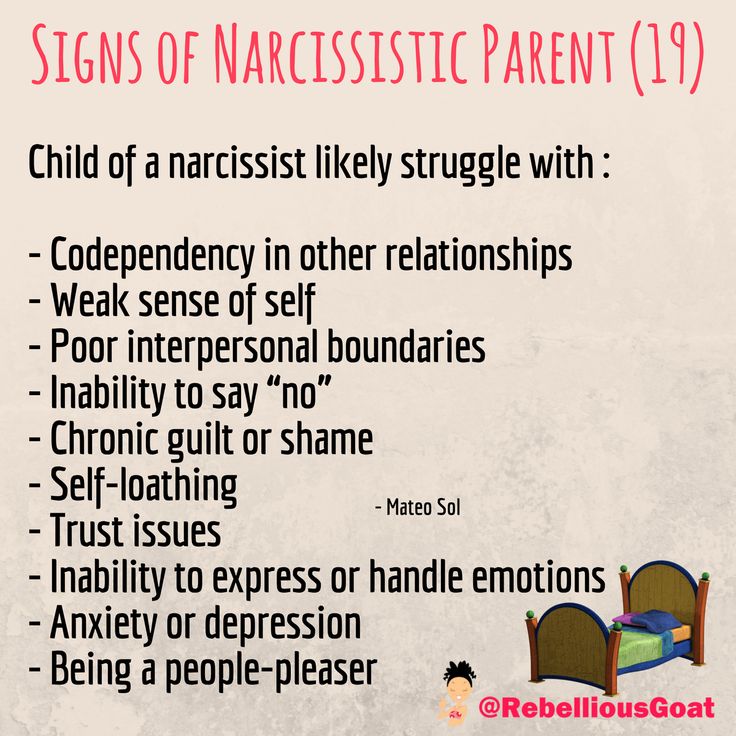
A narcissist will disrespect a boundary because their characteristics, personality traits, and needs require them to do so. It’s important to remember that the answers you seek when healing from narcissistic abuse will always come from within. Of course, the guidance of a medical professional is strongly encouraged but at the end of the day, you’re in charge of your own destiny.
Get a Free Healing Bundle Every Week!
- 1 Educational Video From a Mental Health Professional
- 1 Informative PDF About Narcissistic Abuse
- 1 Journaling Exercise With Multiple Prompts
- 7 Affirmations for the Upcoming Week
- Lifetime Access to Our Private Online Community
Get a Free Healing Bundle Every Week!
- 1 Educational Video From a Mental Health Professional
- 1 Informative PDF About Narcissistic Abuse
- 1 Journaling Exercise With Multiple Prompts
- 7 Affirmations for the Upcoming Week
- Lifetime Access to Our Private Online Community
All of the content that Unfilteredd creates is for educational purposes only and is not intended to be a substitute for clinical care — please visit here for qualified organizations and here for qualified professionals that you can reach out to for help. This article has been reviewed by our editorial board and has been approved for publication in accordance with our editorial policies.
This article has been reviewed by our editorial board and has been approved for publication in accordance with our editorial policies.
Luchner, Andrew F., et al. “Maintaining boundaries in psychotherapy: Covert narcissistic personality characteristics and psychotherapists.” Psychotherapy: Theory, Research, Practice, Training 45.1 (2008): 1.
Why Boundaries Won't Help With Narcissists
Don’t even try to explain why you’re setting the boundary to them, either. Narcissists don’t care about your feelings. They genuinely aren’t interested in how much happier you’ll be with boundaries in place. They don’t want you to be happy. No, they just want you to keep supplying them with attention.
As a result, they only care if a boundary affects them and their access to you.
How Do Narcissists React To Boundaries?
Narcissists see boundaries as an attack on them, even if they’re not.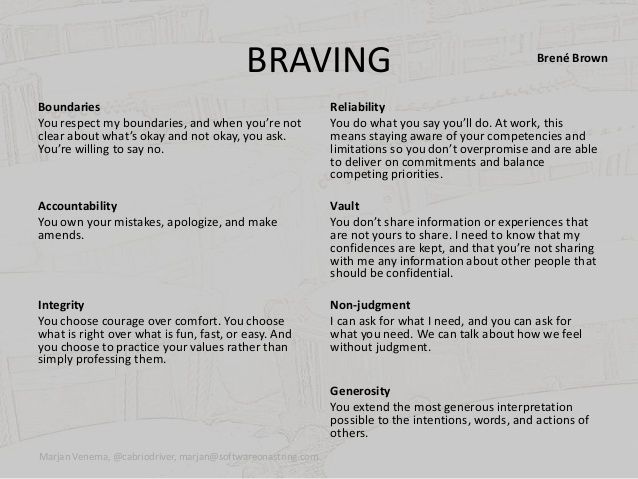 For example, you might hate checking emails after 7 pm. Whenever you do, you get dragged into work-related stuff. So you set a boundary - no checking emails after 7 pm.
For example, you might hate checking emails after 7 pm. Whenever you do, you get dragged into work-related stuff. So you set a boundary - no checking emails after 7 pm.
A non-narcissist would be proud of you for putting yourself first. To a narcissist, you’re limiting their ability to contact you whenever they want. They will push back the moment you set the boundary.
In fact, you might get one, or all, of these reactions to boundaries.
Gaslighting
They use gaslighting to knock you off balance. You’ll question if you even need boundaries. Expect phrases like “You’re over-sensitive”. Or “This is another one of your personal development fads, isn’t it?” They’ll say whatever they can to belittle your decision. It erodes your boundaries until you let the narcissist do what they want.
Ignoring Them
Narcissists will often ignore boundaries altogether. They might steam-roller through them because they don’t recognise them as being valid. If they don’t ignore them, then expect them to test your boundaries. They’re looking for wiggle room or weaknesses they can exploit. Getting past your boundaries will become a game for them.
They might steam-roller through them because they don’t recognise them as being valid. If they don’t ignore them, then expect them to test your boundaries. They’re looking for wiggle room or weaknesses they can exploit. Getting past your boundaries will become a game for them.
Emotional Abuse
Expect an emotional abuse campaign in response to your new boundaries. This is their way of acting out because you’re stopping them from treating you however they please.
Getting Defensive
This is where narcissists show how little they value you or your happiness. When they get defensive, they show you how much it bothers them they can’t behave as they please. Remember, a strong sense of entitlement often comes with narcissism. Strangely, a narcissist getting defensive shows you how little they care about you. It can help to clarify which people to remove from your life!
One problem with setting boundaries with narcissists is that it shows them what is important to you. This gives them valuable ammunition so they know exactly what to target next time they want to hurt you.
This gives them valuable ammunition so they know exactly what to target next time they want to hurt you.
So if setting boundaries both angers and empowers a narcissist, what can you do?
Leave the narcissist. I know it’s hard, which is why we wrote a guide about how to get narcissists to leave you alone.
But you need to accept that they will not change. They can’t change. You can’t love them enough to bring back the fake version of them you first met.
Let it go and leave. Go ‘no contact’ so you’re not wasting time trying to find out what they’re doing or saying about you. Don’t give them any routes back into your life. If you do, they’ll probably try hoovering to bring you back around... and then the abuse starts again.
Read our guide to getting your life back.
Do this too often and you train yourself that your boundaries don’t matter. Other people can cross them with ease because you don’t uphold them for yourself.
Other people can cross them with ease because you don’t uphold them for yourself.
Start setting boundaries for yourself and keep them. You’ll be able to retrain yourself that your boundaries matter because YOU matter. Having healthy boundaries is a great deterrent for manipulative people.
3. Learn to Identify and Disarm Narcissists
Walking away from a narcissist and having boundaries will only get you so far. Being able to spot a narcissist - and turn them away - will save you from heartache and psychological trauma.
Please don’t think you can rely on intuition to see narcissists for what they are. Narcissists have left some of the most intuitive and intelligent people in pieces because they didn’t see the narcissist coming.
Narcissists are masters at bending and flexing to appear the way you want to see them.
Unless you know what to look for. Our Identify and Disarm Narcissists program will teach you exactly what to spot and what to do when you see it.
Our Identify and Disarm Narcissists program will teach you exactly what to spot and what to do when you see it.
It’s based on the valuable research of Chase Hughes, a world leader in behavioural profiling. He helped us create this training to give you the skills you need to avoid these dangerous predators. You’ll never fall into the orbit of another narcissist, leaving you free to enjoy healthy relationships with the people in your life.
Click here to sign up for our Identify and Disarm Narcissists program. You deserve to live without the trauma of a narcissist in your life.
Click here to sign up
God complex: what is it, symptoms, how to defeat
. Symptoms, signs and causesUpdated on July 26, 2022, 5:57 pm
Shutterstock
Inflated self-esteem, megalomania, narcissism - all these characteristics apply to the syndrome that psychologists call the God complex. We figure out together with experts how to identify the symptoms of such a condition, help to overcome it and how to communicate with those who are experiencing it.
Contents
- What is
- Symptoms and signs
- Causes
- How to communicate with a person with a god complex
- How to treat
What is a god complex
The God complex is a person's steady belief in his overestimated abilities and possibilities. He considers himself better than others and believes that his achievements are superior to those of others. Often this behavior is called megalomania, but in psychology there is a scientific name for the syndrome - "theomania".
This is not a diagnosis or a clinical term in psychology and psychiatry. The God complex represents several manifestations of character and behavior:
- inflated self-esteem;
- megalomania;
- aloofness, distancing;
- giving too much importance to information about oneself;
- the desire for unconditional domination over people.
The pattern was first described by Alfred Adler at the beginning of the 20th century. Psychologist Adler argued that the complex is a defense mechanism against feelings of inferiority.
Psychologist Adler argued that the complex is a defense mechanism against feelings of inferiority.
In 1913 Ernest Jones, President of the International Psychoanalytic Association and the British Society of Psychoanalysts, a student of Sigmund Freud, coined the term "God complex". In Essays in Applied Psychoanalysis [1], Jones described the narcissistic personality type, which was characterized by fantasies of omnipotence, the desire for fame, inadequate social status, and an overestimation of one's own abilities. The psychoanalyst proved that because of all this, a person cannot exist harmoniously in the real world.
Shutterstock
In modern psychology, the complex is described using alternative terms. For example, the Austro-American analyst Heinz Kohut calls it narcissistic personality disorder, the American psychoanalyst Annie Reich calls it compensatory narcissism. Sometimes the term “messiah complex” is used to describe the syndrome; in the USSR it was called the reformation complex.
The God complex forms an authoritarian type of personality with its inherent confidence in its imaginary greatness. It is often found in politicians and statesmen and those whose professions and position make other people dependent on them. The complex is typical for religious figures and leaders of sects. And its realization and desire for power over others arises simultaneously with disregard for society, its norms, moral and universal values. A person with a god complex often does not admit their mistakes or failures, even in the presence of irrefutable evidence. It ignores the rules and requires special privileges.
Are God complex and narcissism the same thing?
The God complex is very similar to narcissism, although these syndromes are not exactly the same. First of all, this is an undiagnosed condition. Often those who describe the complex mean a person with narcissistic personality traits (NPL). But narcissistic personality disorder (NPD) is already a branch of psychiatry. At the same time, those who are diagnosed with NPD will show signs of the complex.
At the same time, those who are diagnosed with NPD will show signs of the complex.
The God Complex is not a clinical diagnosis, it is not included in the DSM (Diagnostic and Statistical Manual of Mental Disorders) and is not a narcissistic disorder with which it is often confused, says Valeria Moshnyatskaya, clinical psychologist at the European Medical Center. However, this is a common set of problems of behavior and experiences in people who tend to consider their opinion the only true one, not to notice their mistakes and justify in a positive way for themselves. People with a similar feature are characterized by high self-esteem, lack of criticism of their actions, irritability. But if a person with narcissistic personality disorder has these traits in all areas of life, then the god complex tends to manifest itself only in emotionally significant situations, for example, only in the workplace or only in communication with loved ones.
In various psychotherapeutic approaches, this complex can be called differently.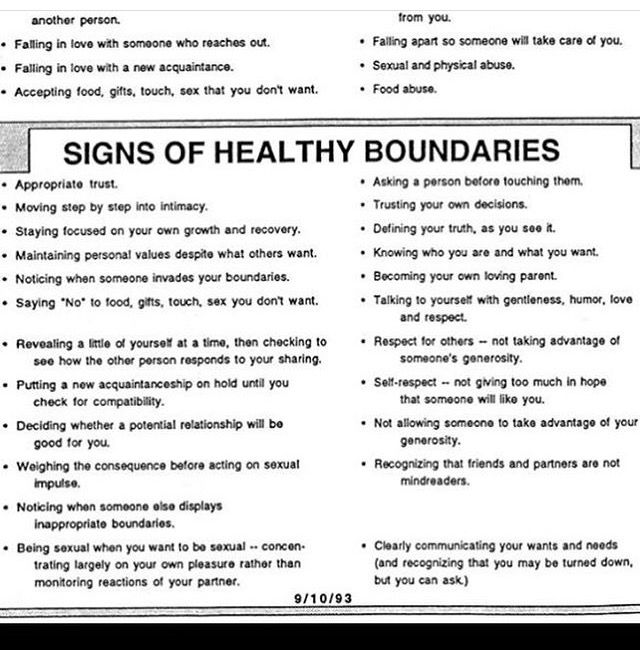 So, for example, in schema therapy this is the self-aggrandiser mode, and in psychoanalytic theory it is the Jehovah complex, in the cognitive-behavioral approach this is an ineffective coping strategy, in Gestalt therapy this phenomenon is considered as a specifically formed defense against stress.
So, for example, in schema therapy this is the self-aggrandiser mode, and in psychoanalytic theory it is the Jehovah complex, in the cognitive-behavioral approach this is an ineffective coping strategy, in Gestalt therapy this phenomenon is considered as a specifically formed defense against stress.
God complex symptoms
Shutterstock
According to psychologist Andrea Blaylock-Johnson, inflated self-esteem is the main symptom of a god complex [2]. It is also expressed in other characteristics: "These people believe that they are the smartest, they know everything better than anyone." People with theomania tend to take their arrogance to the extreme, believing they can do whatever they want with little or no regard for others, and that they have a right to do so.
Often a person with a god complex:
- megalomaniacal and puts other people below him;
- spends hours talking about his virtues, not listening to others;
- makes it a priority to impress;
- expects praise and gratitude from others;
- considers himself omnipotent.

When the God complex manifests itself most often
“Age doesn't matter,” says Gestalt therapist Tatyana Gavrilova. Everyone has narcissistic reactions to events, and at different periods of life they manifest themselves to one degree or another. For example, in crisis moments of life, narcissistic behavior may become predominant. However, clinical psychologist Valeria Moshnyatskaya believes that, like any personality traits, this phenomenon can begin to manifest itself in younger adolescents, and is finally formed by the age of 23–25.
According to experts, gender does not affect the manifestation of the complex. Often the complex can be supported by the stigmas of society. For example, if there is an established patriarchy in society, we will more often observe this phenomenon in men. In the modern world, the distribution between both sexes is approximately equal.
Signs of a god complex
Shutterstock
In order to understand how to deal with the situation, one must pay attention to the characteristics that people with a god complex can show. Here are some common features [3]:
Here are some common features [3]:
- Inflated self-esteem. People think they are more important than they really are.
- Gaslighting. People with theomania are self-absorbed and have difficulty recognizing or accepting the experience of another person. This can lead to gaslighting, a form of manipulation that involves denying someone's reality.
- Lack of empathy. People with a god complex are characterized by a lack of empathy.
- Reckless behavior. Due to the tendency to be self-centered and lack empathy, people often act inconsiderately and do not think about how they affect others.
- Seeking approval. There is often an excessive need for external admiration, praise and recognition.
- Heartless or insensitive behavior. People with theomania can be inexplicably cold towards others.
- Intentional isolation. A person thinks that he is better than the rest and does not need anyone else. In this case, the complex is different from social isolation due to depression or anxiety.

- No long-term relationship. If the person does not have close friendships or romantic relationships, this may be a sign that the partners have decided not to keep in touch.
- Disrespect for personal boundaries is a common reason people push away loved ones and friends. They believe that everything belongs to them, and are shocked and offended when they are refused.
- Disclaimer. This is a clear sign of the complex. Its owners try to control the situation, but never want to be held responsible.
- Narcissistic personality disorder or other mental illness associated with bipolar disorder.
Causes of the god complex
Unsplash
Tatyana Gavrilovagestalt-therapist, specialist of the psychological platform Alter
In Gestalt therapy, psychologists adhere to the dynamic concept of personality, according to which there are three main lines of reaction to ongoing events: schizoid, narcissistic and neurotic.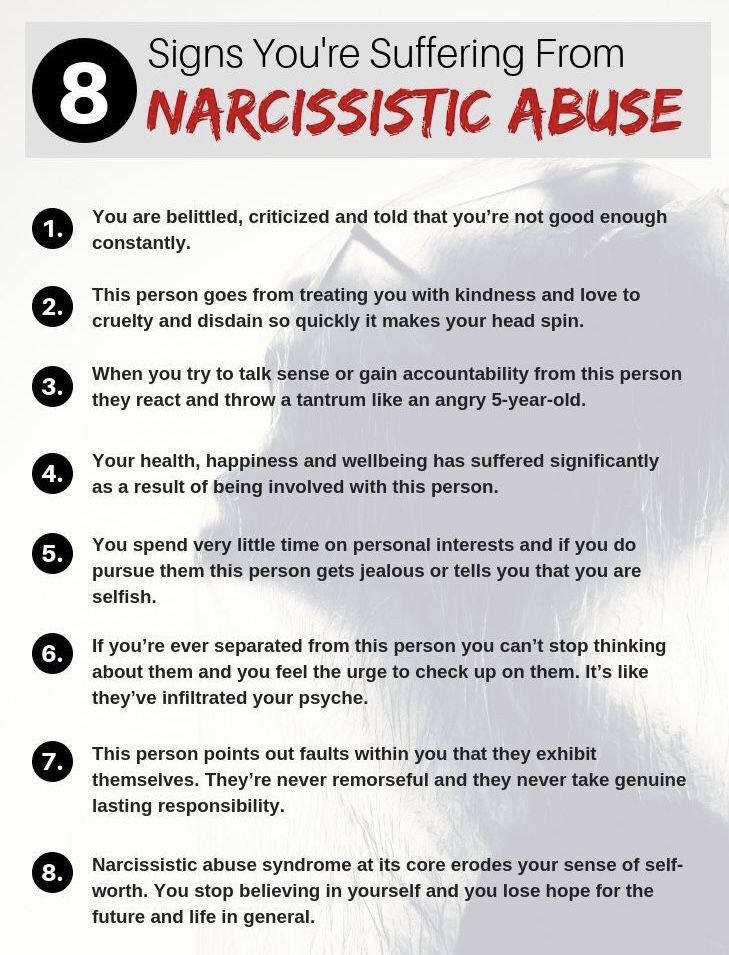 All these components, to a greater or lesser extent, are present in the personality of each person.
All these components, to a greater or lesser extent, are present in the personality of each person.
According to this concept, a narcissist lives inside all of us. We are proud of ourselves if we are praised, and we are sad when close and significant people do not approve of our actions and deeds. The inner narcissist allows you to move on, compete, challenge and win. All great achievements are usually carried out by narcissists. Such manifestations of personality are normal and inherent in everyone. Problems begin when the narcissistic part of the personality begins to prevail over others.
People around perceive the narcissist as a person with high self-esteem, who considers himself better than others and is arrogant towards other people.
A person with pronounced narcissistic behavior tends to constantly evaluate everyone around, compare himself with others. He needs to be better than others, to feel the admiration of others, so as not to feel a sense of shame and his own insignificance. But any, even great, achievements quickly fall into a black hole - an emptiness inside that cannot be filled with machines, power and money. The problem is that the narcissist thinks he wants admiration, but what he really needs is unconditional love and intimacy - only he does not realize this and does not know how to be in close relationships.
But any, even great, achievements quickly fall into a black hole - an emptiness inside that cannot be filled with machines, power and money. The problem is that the narcissist thinks he wants admiration, but what he really needs is unconditional love and intimacy - only he does not realize this and does not know how to be in close relationships.
The narcissist lives in two polarities: in times of recognition of his achievements, he is divinely beautiful and omnipotent, in the moment of making mistakes or non-recognition, he is a complete failure and insignificance. And this state always depends on external or internal assessment and is associated with external recognition. Since narcissists feel either "divine" or "insignificant", they evaluate those around them in the same way. They are characterized by polar judgments and assessments of people and events.
As for the reasons for the development of the complex, in the Gestalt approach they try not to label and not make diagnoses, therefore the God complex, a narcissistic way of responding to the surrounding reality, can be considered as protection, overcompensation, as a way of interacting with the outside world.
The reasons may be different. Everything comes from childhood, including this “narcissistic hunger”. If at one time a child was loved and praised for achievements, expressed their admiration only when he achieved success, constantly compared with other children, then when he grows up, he will have the feeling that he will be loved only on condition that he is better. others.
If parents did not know how to rejoice that the child exists and he is like that, then as a result he does not leave the feeling that he is not good enough, which means that his achievements and successes are worth nothing. Such a child depends on external evaluation, compares himself with others, as a rule, not in his favor. Since the little narcissist has received a message from his parents that he is not always good enough and successful and cannot be loved just like that, he develops such a mechanism as depreciation. All achievements are recognized only today, and tomorrow they mean nothing. The narcissist devalues not only his successes, but also his qualities and himself.
The narcissist devalues not only his successes, but also his qualities and himself.
Behind the facade of inflated self-esteem, an excessive sense of self-importance, grandiosity, the narcissist hides self-doubt, a constant internal feeling of fear that he is worse than others, or a feeling of shame because of his weakness and low position, and a feeling of his own strength and invincibility arises only in periods of recognition and admiration, but this feeling is short-lived.
Life difficulties of people with a God complex
The main problem of such people is a painful reaction to criticism addressed to them. Remarks can greatly upset them. Most often, people with a God complex are fixated on their own person and do not want to hear others. If they do not try to change, they remain alone or are in constant search of partners who will obey them.
It is difficult to cope with the complex alone, so it is better to seek help from a psychologist. Relatives can also help solve the problem.
How to Communicate with a Person with a God Complex
Unsplash
Now that you know what a god complex is, it becomes easier to understand why some people behave this way. The question is what to do with this knowledge.
The best solution is to refuse communication. If a person at the same time tries to ridicule or humiliate you, you need to be able to fight back without getting personal. If you manage to adequately answer, he will lose interest in you.
How you plan to build communication with the owner of the god complex will depend on your relationship with him - whether it be a friend, colleague or family member. But one thing is for sure: you should not focus on trying to change a person. All transformations must be a conscious action. Often such people do not see anything wrong with themselves. They don't want to change.
If you want a person to stay in your life, you can try to create a healthy distance, set personal boundaries. And if he does not like these boundaries, he may have to change the way he interacts. Here are some options [4].
And if he does not like these boundaries, he may have to change the way he interacts. Here are some options [4].
- Ignore . Of course, this is not possible in every situation: people with a god complex can be colleagues or family members. In this case, you can try to switch when the person starts to annoy you and ignore everything he says.
- Leave . If you are in a close relationship with someone who has such a complex, you should consider leaving before the situation gets out of hand. Remember that if you stay, it will cause more damage in the long run than if you leave right now.
- Fight back . There are times when you need to continue communicating with such a person - for example, when a colleague is overly critical of you. In this case, psychologists advise to resist.
- Set the boundaries . Limit interactions to the minimum necessary level of communication. At the same time, the person must know what he can tell you, when and how.
 He must also be aware that he cannot abuse or manipulate you.
He must also be aware that he cannot abuse or manipulate you. - Offer help . In some cases, the problems associated with the complex can be overcome by a specialist.
It is important to remember that people who are so annoying, believing themselves to be godlike and the best, often suffer from low self-esteem.
If you decide to part with the owner of the god complex, follow your intuition and stay true to yourself. You should not try to change a self-centered person who does not recognize established boundaries.
Valeria Moshnyatskayaclinical psychologist of the European Medical Center
You need to understand that, when faced with any rigid (hard to change, rooted) attitudes, you should not convince a person and go to an open argument: this will convince the opponent that he is right even more clearly. Try to find ways to solve the problem, taking into account his opinion. It is better to spend your energy on a creative solution and get a result than to spend yourself on a war in which you will certainly lose. Ask more questions, try to find out the reasons for that particular decision or judgment, and try to explain your intentions and motives. Most often, the god complex protects the wounded part of the personality, the part that may have been traumatized in childhood.
Ask more questions, try to find out the reasons for that particular decision or judgment, and try to explain your intentions and motives. Most often, the god complex protects the wounded part of the personality, the part that may have been traumatized in childhood.
Tatyana Gavrilova:
“How to communicate with those who have a God complex? As with ordinary people. All people have their own built-in defenses and ways of interacting with the outside world. In addition, the narcissistic component is present to a greater or lesser extent in the personality of each person.
However, being in contact with a pronounced narcissist is not easy: he is afraid of close and trusting relationships, so he can be emotionally cold, distant, extremely touchy, vindictive, demanding.
In close relationships, the narcissist often devalues the partner. As a result, even the most patient partner, tired of endless devaluation, leaves the narcissist. The separation or even death of a partner is perceived by the narcissist as a rejection.
Narcissus is attractive to other people, as partners hope to warm his frozen heart. But such relationships can be destructive for both if the narcissistic behavior is pronounced. The partners of the narcissist, for years satisfying his needs for love, care, acceptance, in return receive constant depreciation. In such a relationship, they begin to lose strength and become exhausted.
How to get rid of the god complex yourself
Unsplash
Often people with a god complex don't realize that they are pushing others away with their behavior. But you can achieve positive results if you start to realize the problem.
“If you understand that all of the above is about you, and you feel discomfort, you want to stop being anxious and not fall into fears, you should contact a psychologist or psychotherapist working in the schema therapy approach and find a comfortable way to realize your experiences”, - says clinical psychologist Valeria Moshnyatskaya. If you do not feel discomfort, it is important to know about your peculiarity and not give it too much control over life, since its error is that people around you can be extremely uncomfortable, and this can worsen the quality of communication.
Tatyana Gavrilova:
“If a person is not satisfied with his life because of pronounced narcissistic reactions to the world around him, then it is advisable to seek help from a therapist, because these narcissistic experiences are very painful. Dealing with a God complex on your own is difficult. Even if a person is aware of his pattern, he needs support to change his life. In therapy, he will be able to gain new experience when the therapist will accept him not for achievements, but because he himself is unique.
Is it possible to treat or treat a god complex
Shutterstock
“Treatment of the complex is possible and necessary to normalize the human condition,” says clinical psychologist Valeria Moshnyatskaya. Only at first glance, this phenomenon makes a person self-confident and decisive, in fact, internal experiences are very strong, often they may not be recognized and felt as physical discomfort (anxiety, fear, stiffness, panic), that is, visually a person is calm, sharp, confident in himself and his actions, but inside he feels constant fear and anxiety, the cause of which is sometimes not so easy to understand.
Tatyana Gavrilova:
“Therapy is not only possible, but also desirable to improve the quality of life. If narcissistic behavior is pronounced, then only a long and harmonious therapeutic relationship can help the narcissist. For change to be long-term and sustainable, months and years of work are required. The task of therapy is to help a person discover and appropriate his own "I", to cope with the shame of his own imperfection and the desire to devalue everything and everyone.
Share
Submissions
Authors
Tags
Irina Vorobieva
"I'll just make you really hurt" Millions of people around the world suffer from narcissism. How to behave with them?: Society: Russia: Lenta.ru
We all know who Narcissus is: a young man from Greek myth who could not love anyone but himself, and died, unable to tear himself away from his reflection in a pond. Today, many people who seem narcissistic to us are also called narcissists. However, is it really so simple? Who are narcissists and how to behave with them correctly - in the material "Lenta.ru".
However, is it really so simple? Who are narcissists and how to behave with them correctly - in the material "Lenta.ru".
What is narcissism?
We are accustomed to consider as narcissists all those who, as it seems to us, are behaving too provocatively, constantly pointing out their successes and manipulating others. Such people are feared, considered incapable of empathy and even prone to aggression.
Indeed, narcissism in psychology means an exaggerated opinion about one's contribution to society or a group, excessive narcissism and conceit, self-centeredness, belief in one's exclusivity. At the same time, narcissism is a whole range of different personality traits, and some of them are useful to some extent, so you should not demonize this concept.
Clinical psychologist Anna Krymskaya in a Forbes conversation notes that there are four parts of the spectrum of narcissism: individual traits, character, accentuation and personality disorder. Among the healthy manifestations of narcissism, she named character and accentuation, and attributed personality disorder to a psychiatric diagnosis.
Photo: Abstral Official / Unsplash
For example, if a person has a narcissistic nature, he can be ambitious and achieve career success. And narcissistic accentuation is already an extreme degree of the norm. That is, the qualities of a narcissist are very pronounced and can interfere with a person in life, influence his relationship with others, but not so seriously as to diagnose a personality disorder.
Narcissistic personality disorder is diagnosed when narcissism overrides other personality traits, is uncontrollable, and creates serious problems in a person's relationships with other people. However, such a diagnosis requires a long-term pattern of behavior that exhibits at least five characteristics: an inflated sense of self-importance and talents, fantasies of unlimited power, beauty, ideal love, lack of empathy, desire to constantly receive admiration, belief in one's uniqueness, arrogance and arrogance , the conviction that others are jealous.
What are the characteristics of narcissists?
As clinical psychologist Christina Andreyuk explains, in “normal” narcissism, people try to please others, which helps them succeed in their careers or adapt to society.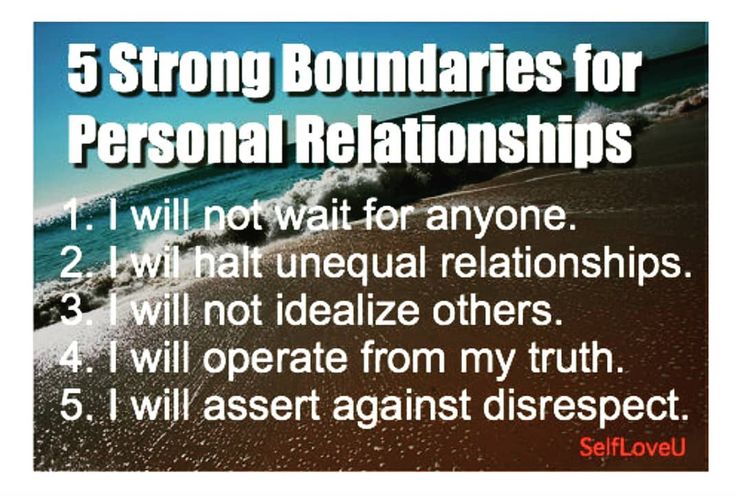 However, in the case of pathology, the narcissist has distorted ideas about himself, which is reflected in his relationships with people: the constant search for recognition leads to manipulation and conflict.
However, in the case of pathology, the narcissist has distorted ideas about himself, which is reflected in his relationships with people: the constant search for recognition leads to manipulation and conflict.
Usually a pathological narcissist:
1. exaggerates his achievements and talents; expects admiration, even if he has not done anything significant, but simply cooked dinner;
2. fantasizes about how he will come to success, power, considers himself a genius in his work and is sure that if he has not yet achieved what he wanted, then everything is still ahead;
3. I am sure that there are very few people like him, that he is not like others, and the environment should be appropriate: high social status and attractive appearance;
4. considers that everyone owes him, and expects that his requests will be fulfilled at the first call; I am sure that he is the best, and the shortcomings of others are a good reason for self-affirmation;
5. uses other people to achieve his goals and does not know how to thank sincerely - he does it only because it is customary;
uses other people to achieve his goals and does not know how to thank sincerely - he does it only because it is customary;
6. does not feel empathy and does not think when hurting someone;
7. envious of others and believes that others envy him - usually the narcissist explains the criticism in his address with envy;
8. behaves defiantly because he is confident in his uniqueness and ability to influence others;
9. believes that he does not need other people to achieve results and make decisions, he is always confident in the correctness of his actions.
Photo: Daniel Monteiro / Unsplash
At the same time, contrary to popular belief, narcissists very often do not like themselves - they suffer from loneliness, dissatisfaction, inner emptiness. With their behavior, they try to cover up low self-esteem, and the slightest criticism or failure can lead to narcissistic injury. At the same time, narcissists can rush from one extreme to another: either they feel better than everyone else, or, on the contrary, they believe that there is no one worse than them.
What are daffodils like?
According to psychologists, people become narcissists who did not receive enough admiration and praise from their parents in childhood, felt inferiority due to their words and actions, and therefore did not develop self-confidence.
Psychologists distinguish three types of narcissism:
1. "grandiose" type narcissism;
2. vulnerable (hidden) narcissism;
3. perverse narcissism.
The first type includes people with inflated conceit, impudent, charismatic. They exalt themselves in the eyes of others, quite obviously use leverage: they can humiliate and criticize others, be rude and sarcastic. They must be the best in everything and are ready to embellish reality to create the perfect picture for others, but often they feel dissatisfaction and emptiness inside.
People of the second type are also self-centered and want attention, but they are more difficult to recognize: they are more reserved and introverted.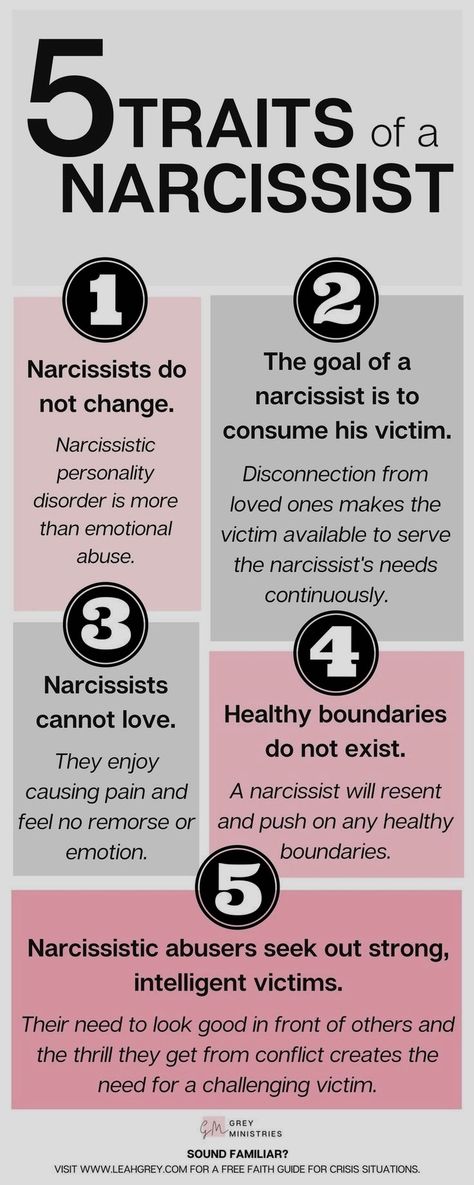 At the same time, unlike extroverted "grand" narcissists, covert narcissists do not show self-esteem so obviously, they deliberately downplay their achievements and talents in order to convince them, and by their behavior will achieve that people praise them without attracting get a lot of attention.
At the same time, unlike extroverted "grand" narcissists, covert narcissists do not show self-esteem so obviously, they deliberately downplay their achievements and talents in order to convince them, and by their behavior will achieve that people praise them without attracting get a lot of attention.
Photo: Toa Heftiba / Unsplash
A covert narcissist may be emotionally abused or pretend to be a victim in order to gain support. He is not afraid to neglect other people's time and interests, he will pretend to be emotionally available, but only in order to make the other feel ashamed or guilty.
The behavior of narcissists of the third type is accompanied by traits of sociopathy (indifference, aggressiveness, disregard for the norms of society) - they have little admiration for their person, they want to dominate. Such people are not able to experience, they are prone to manipulation, emotional abuse and crime, sometimes enjoying it.
Sometimes types of daffodils are mixed.
Narcissists in movies
Even if you haven't met or recognized a narcissist in real life, you've definitely seen him in a movie or TV series. For example, the behavior of a narcissist is demonstrated in the series Big Little Lies and Play Back. It is important for the husbands of the main characters that others think well of them, while in relationships with loved ones they show their real face, and in both cases it is far from ideal.
Another typical example is the Joker from the Batman universe, the films Suicide Squad and Birds of Prey. This hero constantly wants attention and recognition from the public, and in the animated series "Harley Quinn" about the breakup of the superheroine with the Joker, the emphasis is on how people of a narcissistic personality type poison the lives of loved ones.
- Are you going to kill me?
- Oh, I won't kill you. I'm just going to hurt you really, really bad
The Joker and Harley Quinn Suicide Squad
Shot: The Suicide Squad movie
An example of a narcissistic boss can be seen in the movie The Devil Wears Prada — that's exactly the kind of behavior Miranda Priestly demonstrates , which reacts very negatively to delays in the execution of its instructions and behaves quite narcissistically. And, of course, you can’t help but remember Zlatopust Lokons from the movie “Harry Potter and the Chamber of Secrets” - he placed his portraits everywhere, and in the defense against the dark arts test, he even asked students questions about his favorite color and the most grandiose achievement. In one episode, to show off his magical abilities, he decided to fix Harry's broken arm during a Quidditch match, but accidentally robbed him of his bones with the wrong spell, and then was willing to rob the memory of two students for his own benefit.
And, of course, you can’t help but remember Zlatopust Lokons from the movie “Harry Potter and the Chamber of Secrets” - he placed his portraits everywhere, and in the defense against the dark arts test, he even asked students questions about his favorite color and the most grandiose achievement. In one episode, to show off his magical abilities, he decided to fix Harry's broken arm during a Quidditch match, but accidentally robbed him of his bones with the wrong spell, and then was willing to rob the memory of two students for his own benefit.
Narcissism in men and women
Some researchers believe that narcissism manifests itself differently in men and women. In 2015, scientists from the University of Buffalo (USA) found that men are more prone to narcissism than women. Experts have come to the conclusion that men more often than women feel their superiority, the right to privilege and exploitation of others. The average level of inclination to leadership and authoritarianism among men also turned out to be higher, but both sexes were considered equally prone to narcissism.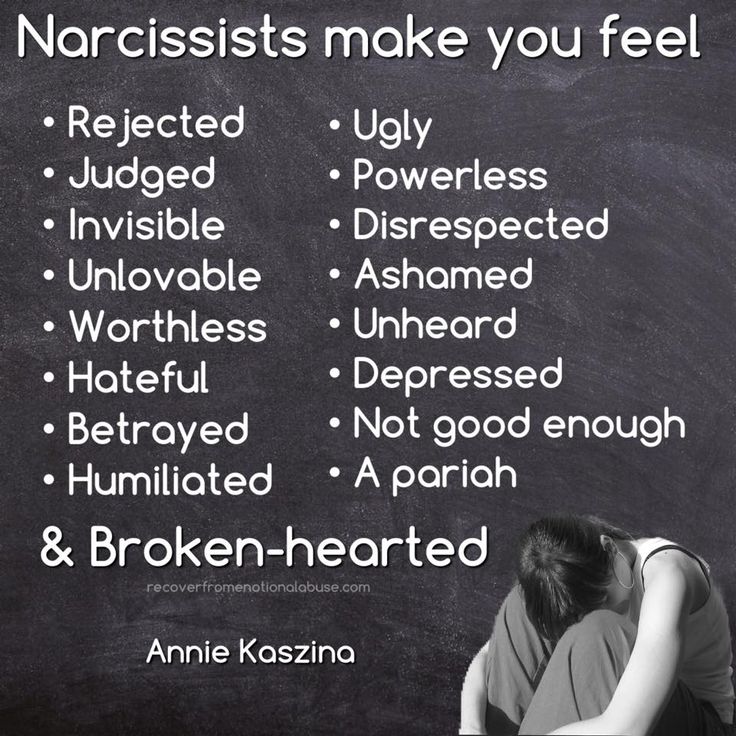
Scientists pointed out that gender roles in society are distributed from childhood, and society reacts negatively to human behavior that does not correspond to them: for example, aggressiveness and authoritarianism in women cause criticism, therefore women more often suppress such traits in themselves
How narcissists manipulate ?
Do not think that everyone we easily classify as narcissists is manipulators, because we have already found out that many people have narcissistic character traits, but not all of them affect relationships with others.
Photo: Nigel Tadyanehondo / Unsplash
However, there are tricks that narcissists most often use to manipulate. They were identified by family therapist Dan Newhart.
1. Narcissist appeals to your emotions, mostly negative - fear and guilt.
2. He refers to what the majority agrees with him: this is how he tries to let you know that otherwise you will be an outcast.
3. For him there is only "yes" and "no", "black" and "white" - there are only two options and no halftones.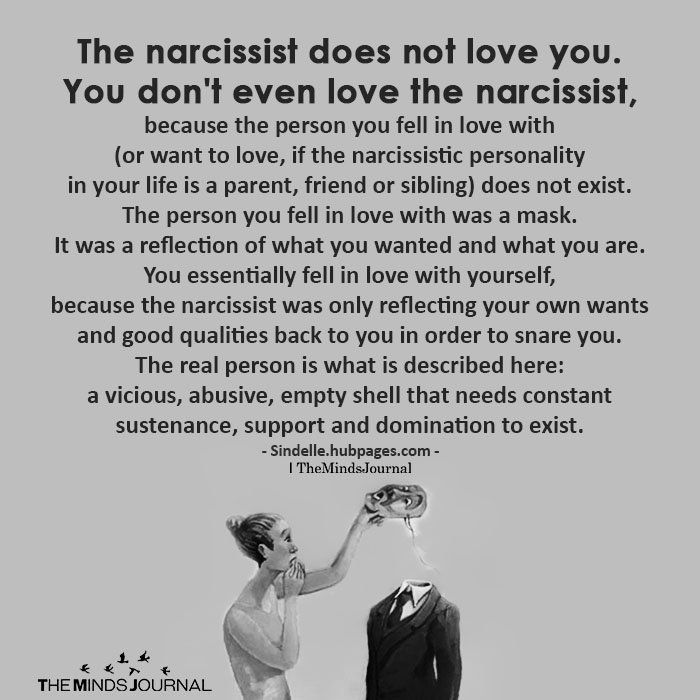
4. Compromises are possible, but only if they are beneficial to the narcissist.
5. The narcissist does not need to prove his point of view - this is the task of those who argue with him.
6. He will gladly flatter you to get what you want.
7. If you make a complaint to him, he will most likely brush it off, because you are talking some kind of absurd and unsubstantiated nonsense and this is not even worth discussing.
8. A narcissist will easily put a negative label on you if you are unpleasant to him or if he does not agree with you. He can also act in relation to a whole group of people in order to justify some kind of violence or negativity towards them.
9. He will make you a thousand promises and will not keep them.
10. The narcissist will easily take your own words out of context in order to turn them against you later.
11. It doesn't cost him anything to make fun of you in order to belittle and show that you are not taken seriously.
12. Inflates the problem to an immense extent, arguing that some actions will eventually turn into disastrous consequences, and refuses to perform them, and also distracts from the essence if claims were made against him.
At the beginning of a relationship, narcissists try to make their partner feel important, as if he is the love of his life. However, this is followed by a sharp depreciation, and the partner is made to understand that he does not deserve special attention and should appreciate that he started a relationship with him at all. It turns into a swing, and a person next to a narcissist feels either the best or the worst.
How to deal with daffodils?
We have already found out that narcissism can be a character trait and does not always negatively affect others, therefore, first of all, it is important for you to understand how you feel next to a person and how it affects your condition.
Ask yourself questions:
1. Is there any disrespect, aggression, manipulation in the relationship?
2. How is your self-esteem?
How is your self-esteem?
3. How do you feel after talking to a person?
4. Why are you talking to this person out of love, fear, pity, or a desire to help?
Photo: Mariya Georgieva / Unsplash
If, after answering these questions, you understand that you feel bad and uncomfortable, such a relationship should be stopped or at least minimize communication. However, even if you saw narcissistic traits in a person, relationships with him can be trusting and warm.
If it is impossible to end the relationship, you should follow the following rules:
1. do not tell the narcissist that he is a narcissist - this will cause anger and a desire to punish you, and then return power over you;
2. it is useless to wait for sudden improvements in behavior, so one should emotionally withdraw and try to ignore manipulations;
3. try to control your communication with the narcissist - strive to reduce contact with him, if you can not completely stop it;
4.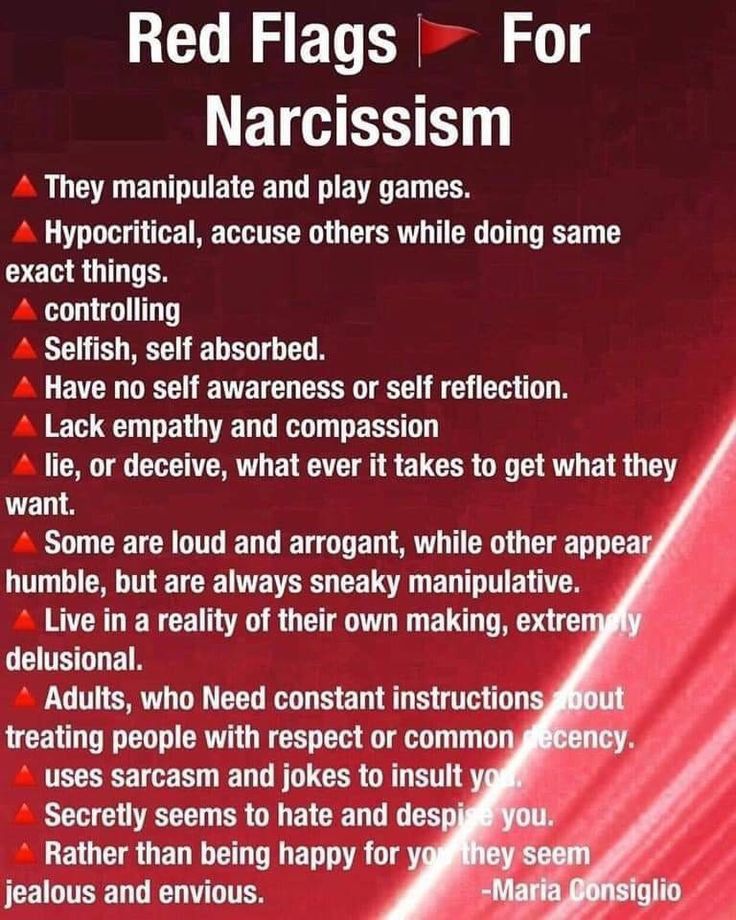 if you recognize the manipulation - answer in monosyllables "yes" and "no" so that the narcissist does not find something to cling to and continue the attack;
if you recognize the manipulation - answer in monosyllables "yes" and "no" so that the narcissist does not find something to cling to and continue the attack;
5. try to keep the discussion in one direction, directly indicating that you have moved away from the topic of conversation;
6. share less personal - these can all be used against you, either to make you feel bad or to make others see you as a bad, unstable or dangerous person;
7. manipulate back - praise the narcissist if you need to get something out of him, and he will most likely do what you need.
If you find yourself struggling with setting personal boundaries, we recommend that you see a psychotherapist.
What if I look like a narcissist?
If you think that you have narcissistic traits, you should observe yourself: how much time you talk and how much you listen, how much you give in relationships and how much you take. To assess your level of narcissism, you can refer to the Narcissistic Personality Inventory.
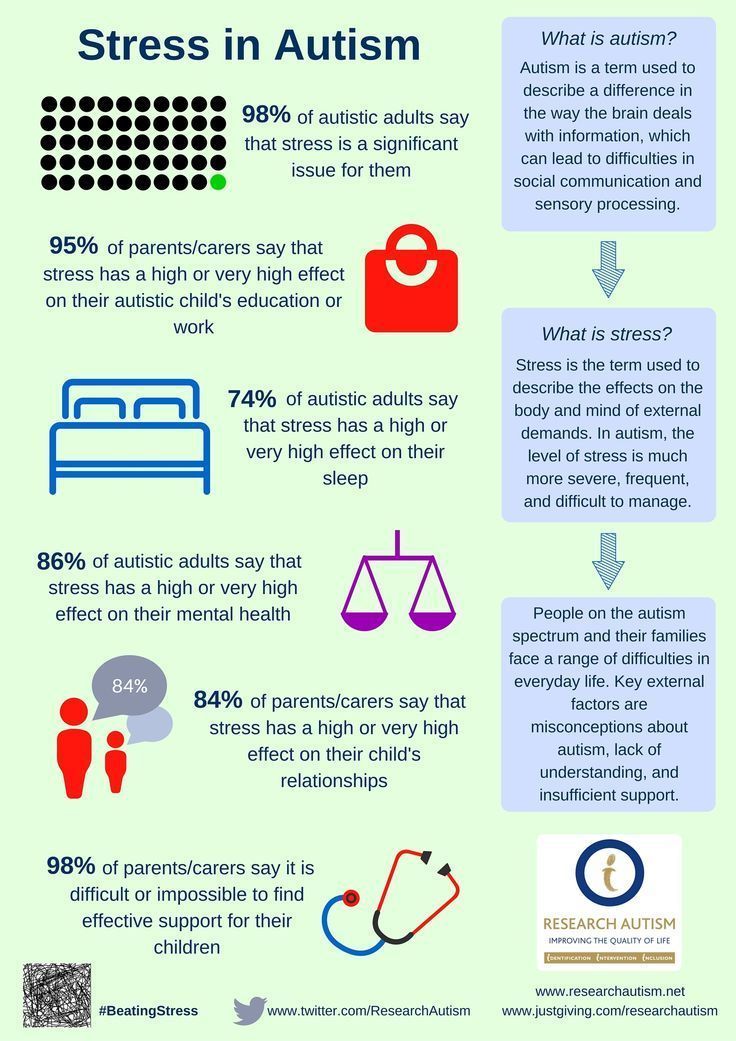


-Cap-30mg-UK-2.jpg)
